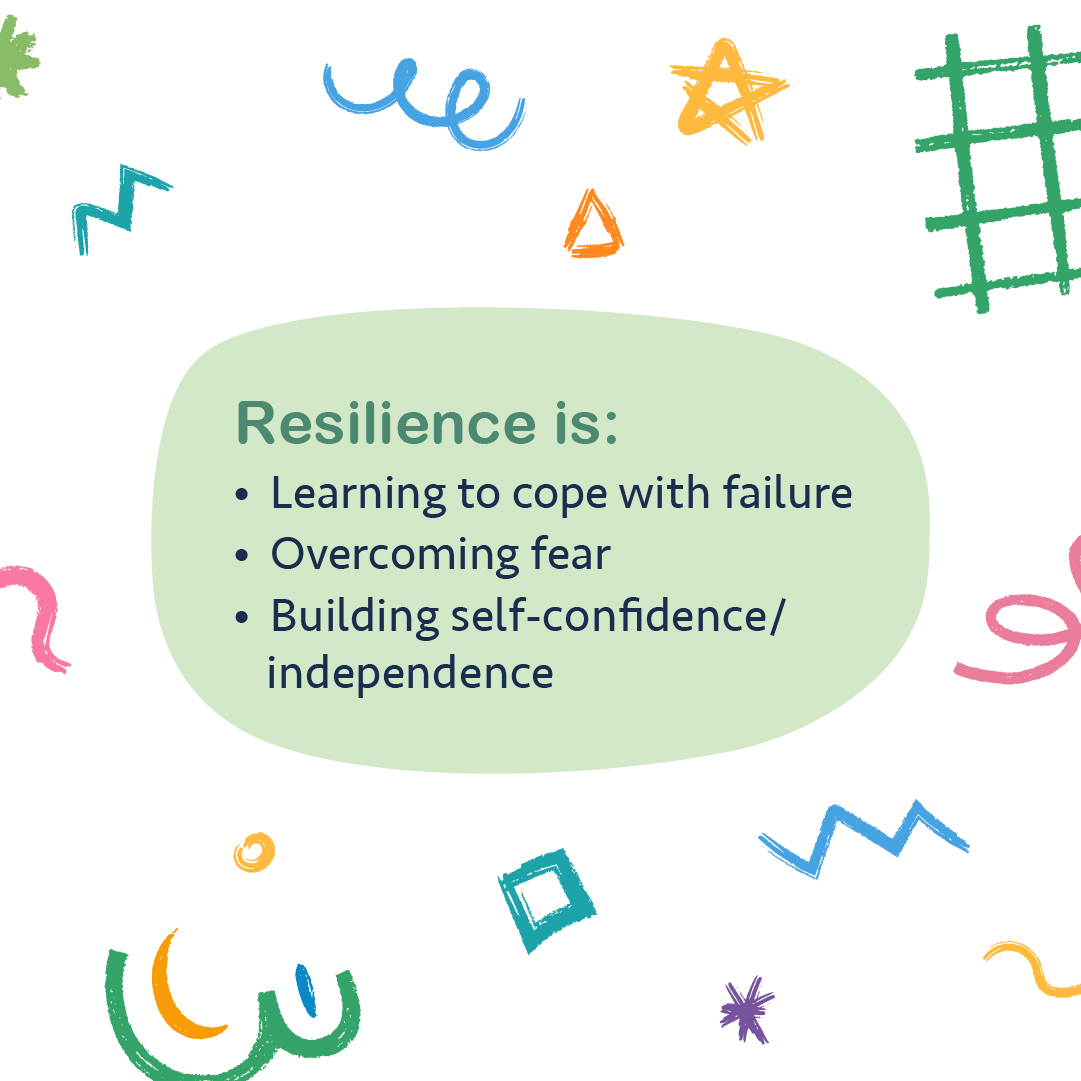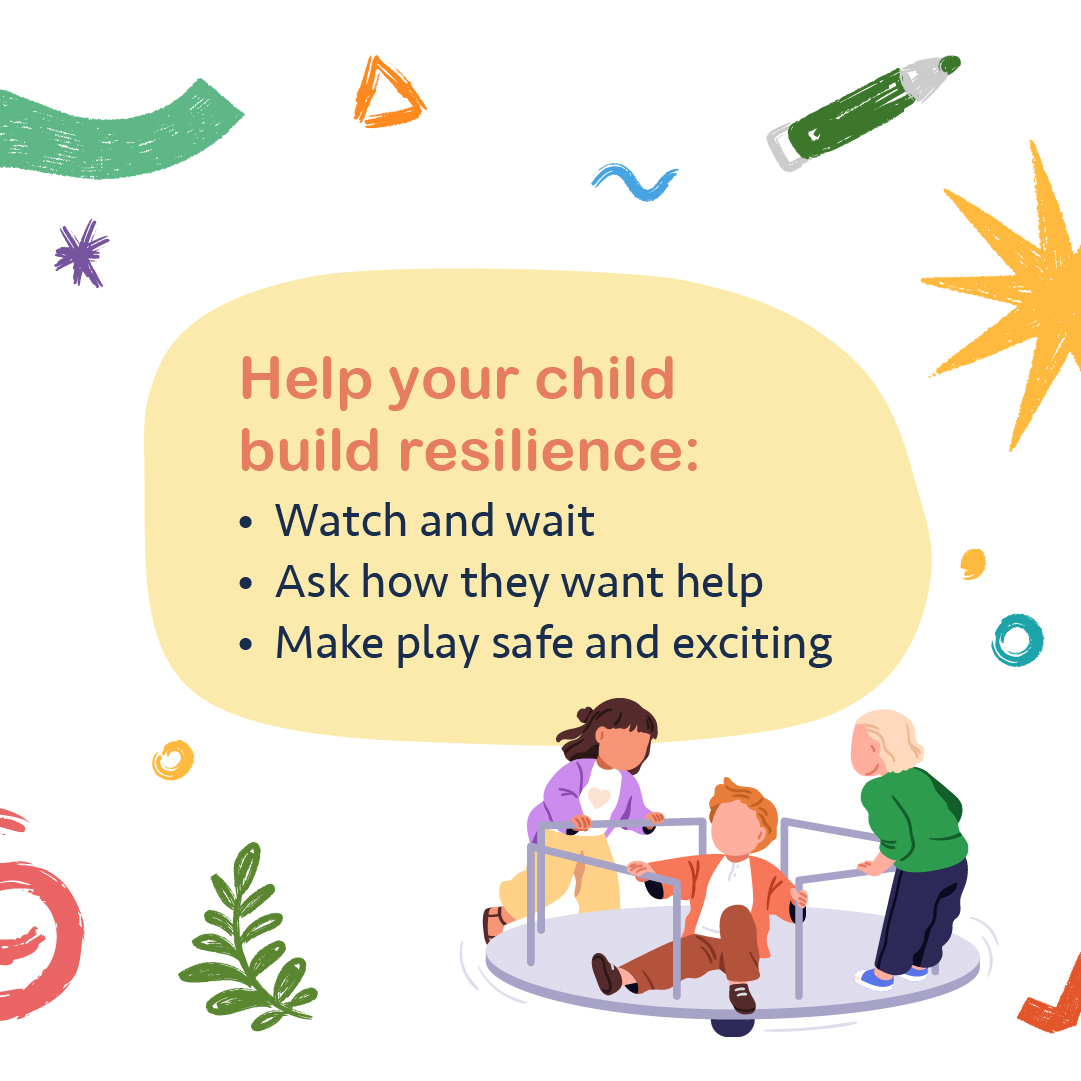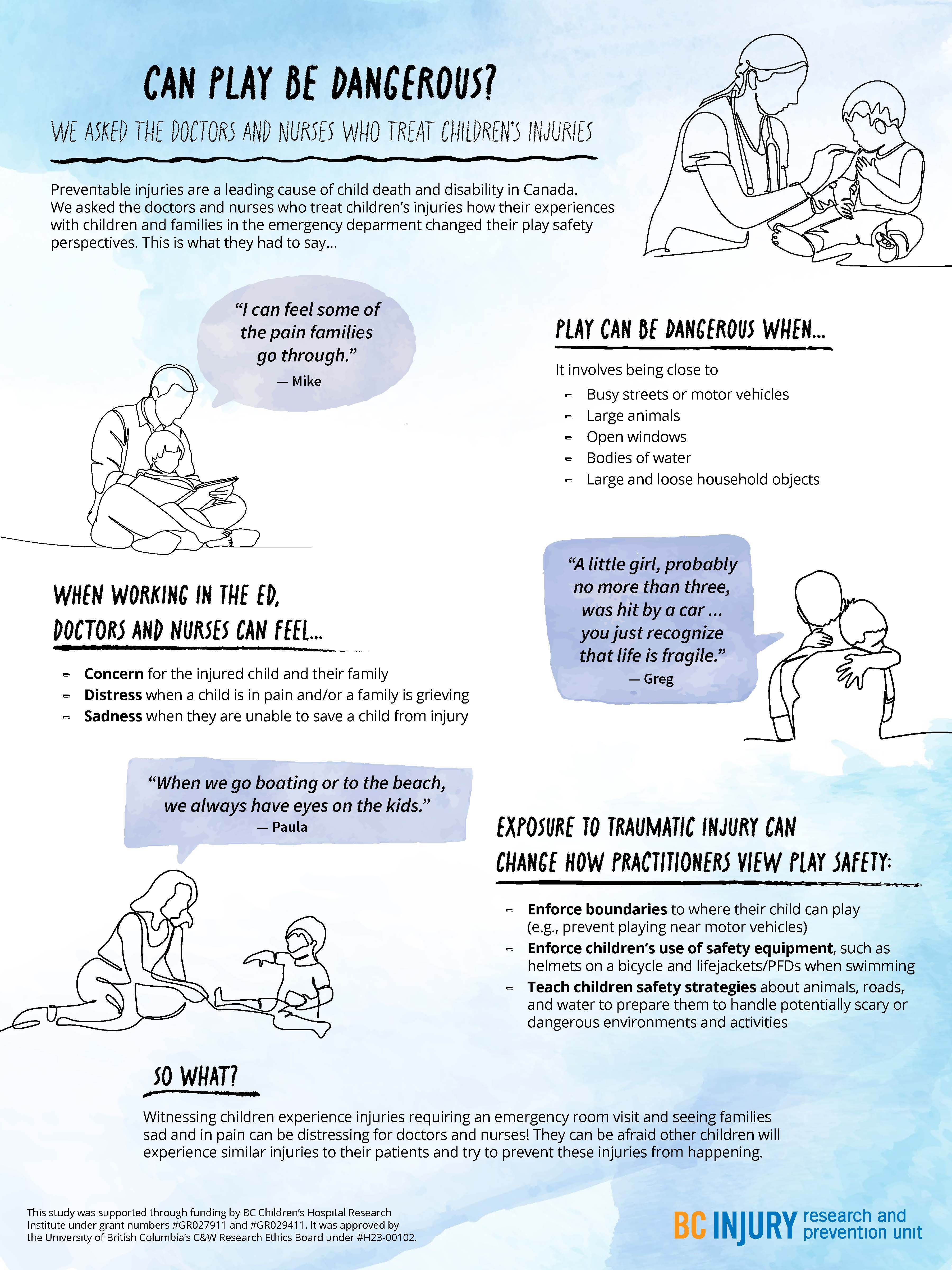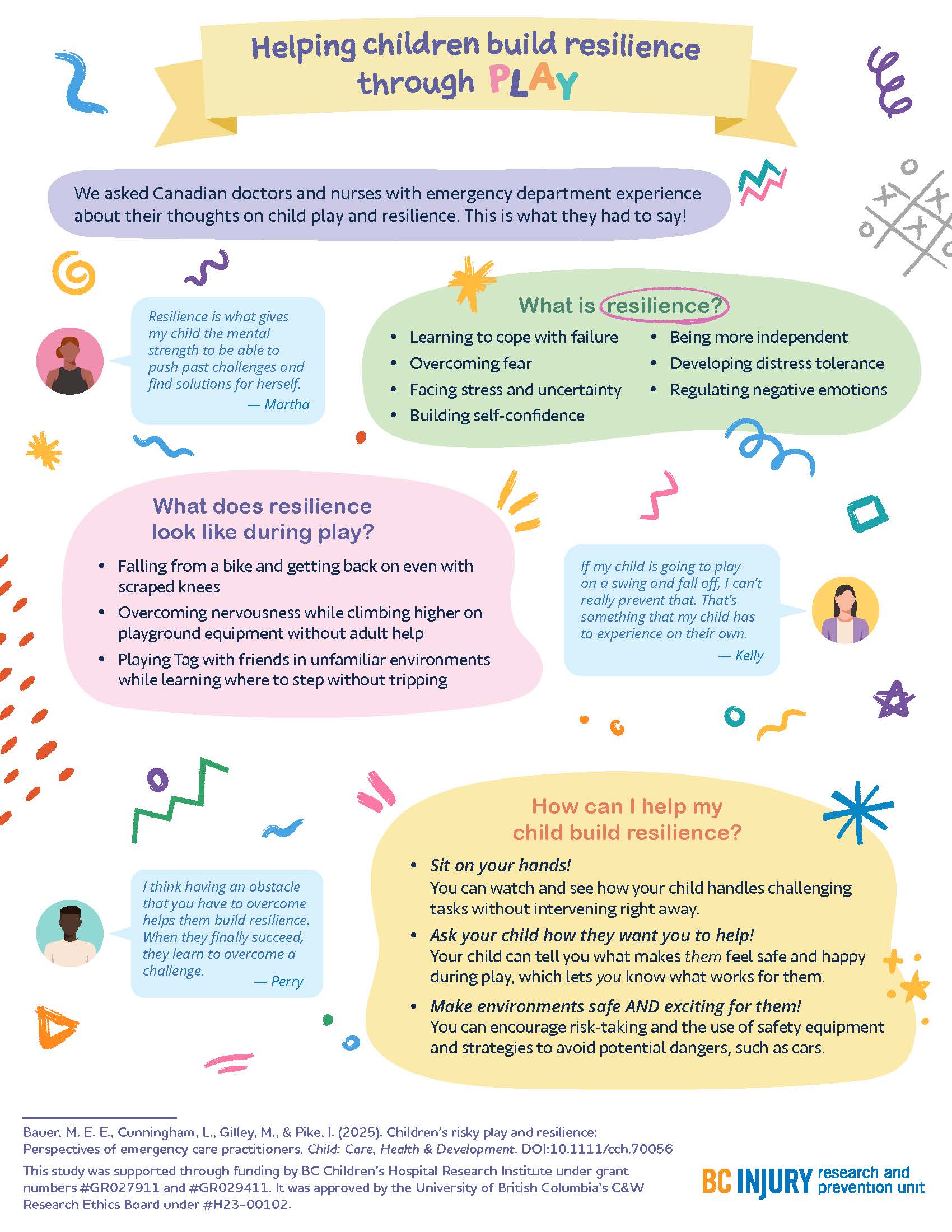Concussion Awareness Week: September 25 to October 1, 2022

The province of British Columbia has declared September 25 to October 1, 2022 as Concussion Awareness Week.
A concussion can happen to anyone, anywhere, and at any time. This year, the BC Injury Research and Prevention Unit will highlight concussion activities in BC and communicate concussion facts to increase British Columbians’ knowledge around concussion recognition, diagnosis, treatment, and management.
Concussion Activities in BC:
The Concussion Awareness Training Tool (CATT): A series of evidence-based online educational modules and resources addressing concussion recognition, diagnosis, treatment, and management. CATT has tailored information for eight different audiences: medical professionals, coaches, parents/caregivers, school professionals, workers and employers, those who work with survivors of intimate partner violence, university-level athletes, and youth engaged in sport. Each month, more than 8,000 people access the information on cattonline.com, and since 2013, the CATT e-learning modules have been completed 100,000+ times by people in more than 50 countries. More than 75 organizations have made it mandatory for their staff and coaches to complete the CATT e-learning modules. Learn more at cattonline.com.
SHRed Concussions Study: BCIRPU is the Vancouver site for this NFL-funded study led by the University of Calgary. SHRed Concussions seeks to better understand concussions in high-school athletes. Learn more about the SHRed Concussions study.
World Rugby Study: BCIRPU Director Dr. Ian Pike will lead the Vancouver study site on injuries and concussions in female youth rugby, as part of a large study funded by World Rugby that will take place across Canada and the United Kingdom.
Concussion Education in Africa: Dr. Shelina Babul returned from a productive and restful sabbatical in August 2022. Her activities included continuing her concussion education efforts in Africa.
The Dr. Brian Hunt Summer Studentship: BCIRPU is pleased to announce the Dr. Brian Hunt Summer Studentship Award. Starting in 2023, this short-term award will be offered to a student each summer to undertake a project related to concussions and traumatic brain injuries. The Award is named after Dr. Brian Hunt, a retired neurosurgeon from North Vancouver with decades of dedication and experience in dealing with brain injury, having worked with professional athletes including the Canadian Alpine Ski Team and the BC Lions.
Download the Concussion Awareness Week Campaign Toolkit to help us promote concussion education.
Quick Facts About Concussion:
- Concussion is a type of brain injury.
- It is estimated that 1 in every 165 Canadian adults suffer a concussion each year. This is considered to be an underestimate, as many people do not seek medical care for concussion.
- Common causes of concussion include falls, motor vehicle crashes, and sports and recreational activities.
- Signs and symptoms of a concussion can include headache, dizziness, nausea, light or sound sensitivity, ringing in the ears, irritability, fogginess, difficulty concentrating, or confusion.
- Signs and symptoms that are “Red Flags” indicating that immediate medical attention is required can include: loss of consciousness, persisting and worsening headache, slurred speech, repeated vomiting, and for toddlers, persistent crying.
- Recovery from concussion typically takes 4 weeks for adults.
- Concussion recovery starts with two days maximum of complete physical and cognitive rest, then a gradual return to normal levels of activity.
- Learn more about concussions on the Concussion topic page.
- distress when a child was in pain and when a family was grieving; and
- sadness in the event they were not able to save a child in their care.
- concern for the injured child and the child’s family;
Particularly traumatic events, such as those involving vivid sights and sounds (e.g., families holding each other and having extreme reactions), stuck with the practitioners, having long-lasting impressions on them and causing them to re-live these events in the years following their exposure.
Even after their shift was over, practitioners said that they changed how they approached parenting and how they perceived safety during play as a result of witnessing these traumatic events. They reported having more knowledge of the causes and consequences of severe injuries, such as those that require hospitalization or emergency care. For example, practitioners were more likely to enforce boundaries around where their children could play, such as by forbidding their child to play near busy streets. They also were more likely to tell their child about safe play environments and equipment, and put this equipment on their child before play, such as explaining the benefits of using helmets while riding bikes.
Practitioners were more likely to enforce boundaries around where their children could play, and use safety equipment, such as bike helmets.
Practitioners also described being concerned about their children’s play near open windows, around large bodies of water unsupervised, and in environments where firearms were present. They also expressed worry about their children’s play on trampolines and on motorized vehicles, such as ATVs. Findings related to trampoline play safety concerns were published in the journal Injury Prevention.
Observing family grief due to child injury or death affected the mental well-being of health care practitioners, drawing attention to the need for mental health supports for those involved in caring for severely injured and dying patients.


"Raise more resilient children through play...watch and see how your child handles challenging tasks without intervening right away." —Dr. Michelle Bauer
Building resilience through play
How can parents help their children build resilience? By letting them play!
The experiences that practitioners witnessed encouraged them to support their children in building resilience through play; specifically, by supporting children in learning to cope with failure, overcome fear, build self-confidence, develop distress tolerance, and regulate negative emotions. Findings related to building resilience through play were published in the journal Child: Care, Health, and Development.

Parents fostered resilience in their kids by:
- helping their kids get back on bikes after they fell off and wanted to try again;
- sitting on their hands so they did not instinctively reach for their children when their children fell down; and
- encouraging participation in challenging and thrilling activities in forests and water while safety equipment was used.
"There are a few ways that parents can raise more resilient children through play that are supported by literature and our study findings," said Dr. Bauer. "One: watch and see how your child handles challenging tasks without intervening right away."
"Two: Ask your child how they want you to help—let them tell you what makes them feel safe and happy during play. Let them lead. And three: make play both safe and exciting by encouraging risk-taking, teaching them how to avoid hazards, and using safety equipment.”
This research was supported through Drs. Bauer’s and Gilley’s receipt of a clinical and translational research seed grant from the BC Children’s Hospital Research Institute (BCCHR), Dr. Bauer’s BCCHR postdoctoral fellowship award, and additional training provided to Dr. Bauer through her participation in the Programs and Institutions Looking to Launch Academic Researchers (PILLAR) program through ENRICH, a national organization training perinatal and child health researchers.
Learn more about the study through two infographic posters:
Graphics and posters by Milica Radosavljevic











